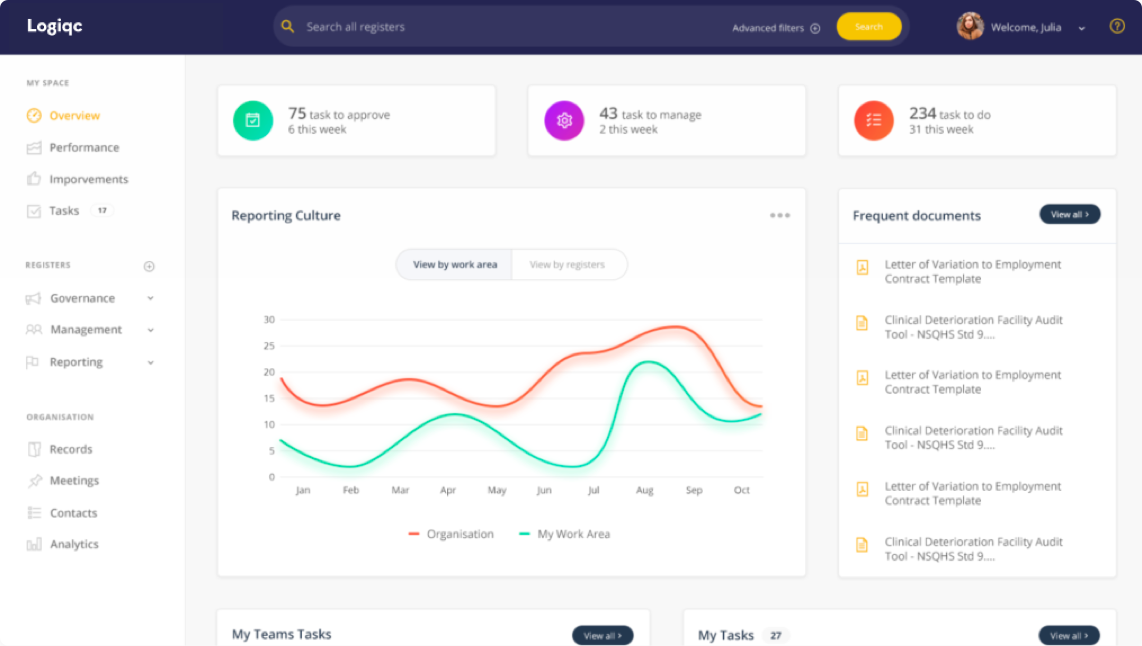Central to the workings of a quality management system is adverse event and incident reporting.
Reporting an adverse event is not just about ensuring the right response protocols are used to manage the event, it is also about providing the organisation with the opportunity to take learnings from the event.
Gaining an understanding of the underlying causes of why particular adverse events or patterns of events occur has the potential to provide insights into how the same or similar events could be avoided from occurring again in the future.
Existing challenges in building a reporting culture
But there are some significant challenges in building an organisational culture that supports adverse event reporting. Some of those challenges include:
- The perception that staff involved will be blamed
- The time taken to report the event is better used to manage the event
- Lack of acknowledgment if you report and lack of consequence if you do not
Additionally, the incident reporting system can make reporting difficult. Common issues are:
- Access to the reporting system is limited, eg office based
- Incident reporting system is complex and not intuitive to use
- It is easier to verbally report the incident
The value of small incremental steps
Getting the reporting culture right can be a significant challenge as it generally requires changing behaviour. Making changes to the culture requires leadership from the top and a clear and shared vision across the team of the purpose and value of the change. And the approach generally needs to be incremental so the gains can be sustained over time.
Selecting the right reporting system is also critical to establishing a robust reporting culture. And this is where platforms like the LogiqcQMS have a role to play. From our experience in aiming for a “minimal loveable product”, it’s not possible to get it right the first time round. And even if you do, it would only be right for that point in time.
We work from the position, that if we don’t know how our customers feel, what makes them tick, or where they are frustrated, we will fail. We actively encourage customer suggestions and feedback as it helps us to keep pace with their ever-changing business needs. Customer feedback is the foundation stone of our improvement/development program.
Brian Halligan, CEO of HubSpot, puts it this way – “If we don’t know what’s right, we can’t do more of it. If we don’t know what’s wrong, we can’t do less of it” – and we agree. Sometimes, our relationship with customers goes further and partnerships emerge to develop innovative solutions tailored to a specific opportunity or problem. A good example of this is our recent partnership with Health Hawkes Bay in New Zealand to build an incident reporting system for the network of GP practices.
Improvement is a constant. So, we are not done yet.
Interested in seeing if LogiqcQMS could be the right choice for your organisation? Get in touch to arrange a free demonstration.





